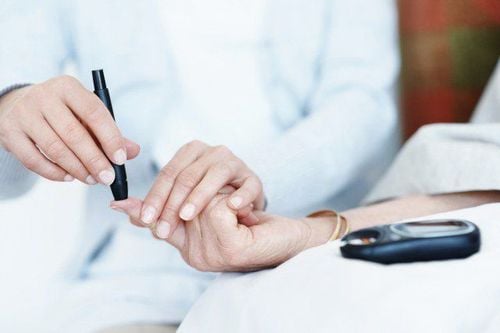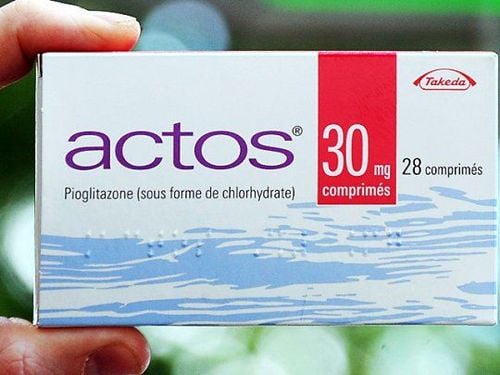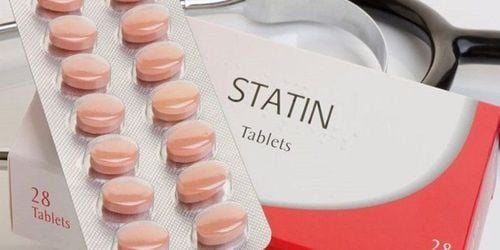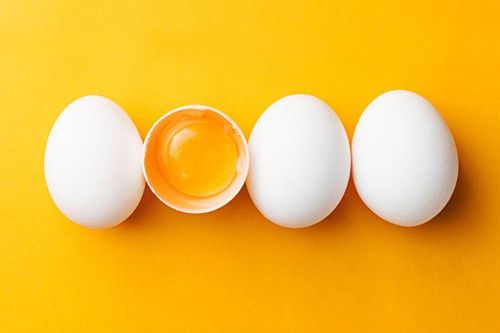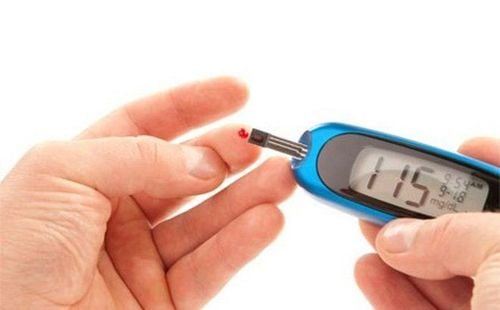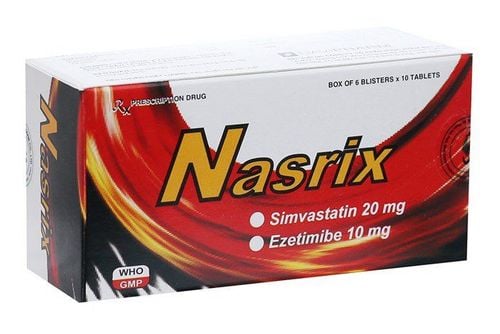This is an automatically translated article.
Consuming a lot of sugar is not good for health, especially liquid sugar causes many health consequences.
1. What is liquid sugar?
Liquid sugar is high-fructose corn syrup, which is consumed in liquid form, an industrial food widely used in the processing of fast food, bottled foods such as: Sugary soda, fruit juice.
Here are the calories and sugar in 355mL of some popular sugary drinks:
Soda: 151 calories and 39 grams of sugar Sweet iced tea: 144 calories and 35 grams of sugar Unsweetened orange juice: 175 calories and 33 grams of sugar Unsweetened grape juice: 228 calories and 54 grams of sugar Lemonade: 149 calories and 37 grams of sugar Sports drink: 118 calories and 22 grams of sugar.

Đường lỏng được sử dụng nhiều để chế biến nước ngọt đóng chai
2. Where is liquid sugar different from table sugar?
2.1 Table sugar Edible sugar is found in flour-based foods such as bread, potatoes, rice, etc. When entering the digestive system, starch will be digested, and part of it will be converted into glucose. And only in the form of glucose, the intestines accept it. Glucose entering the body has the effect of stimulating insulin production, reducing appetite, helping the digestive system work more efficiently.
In addition, glucose will be stored in the liver to become an energy source in the form of glycogen, providing energy when the body has an energy deficiency.
2.2 Liquid sugar Liquid sugar includes glucose and fructose, which goes directly into the body without needing to be metabolized. Glucose enters the blood, fructose enters the liver, causing fatty liver. Liquid sugar does not create hunger. So, if you drink a glass of apple juice, you will not feel that your stomach is somewhat full.
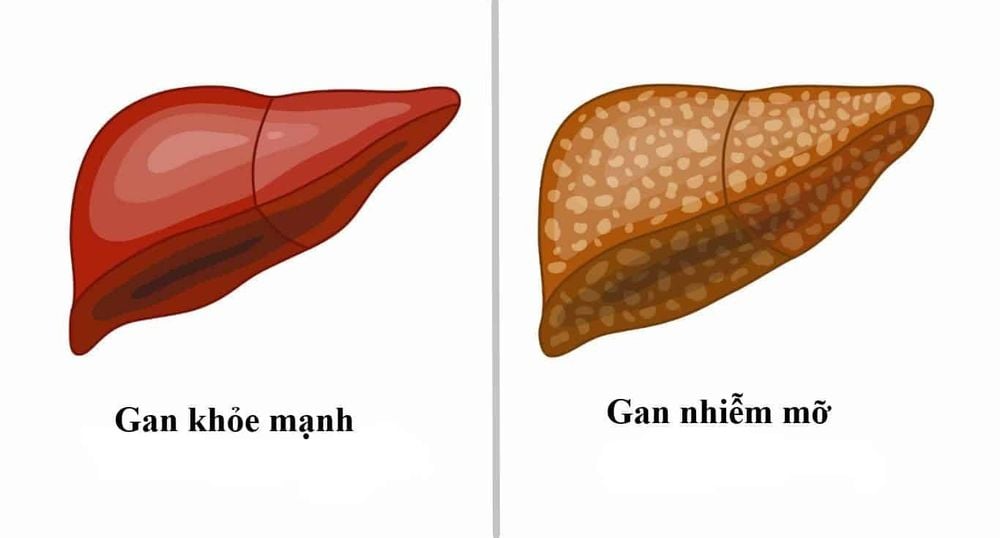
Glucose và Fructose trong đường lỏng hấp thụ vào cơ thể gây ra tình trạng gan nhiễm mỡ
3. How does liquid sugar harm your body?
3.1 Sugary drinks and weight gain If you regularly consume sugary drinks, you may be unwittingly taking in more calories and making you very easy to gain weight.
Practically all sugars that contain fructose, including honey, fruit juices, and fruit juices are equally likely to cause weight gain. Moreover, when there is excess fructose, it is easy to gain weight, increase belly fat, increase the risk of disease. Drinking a cup of soda makes it easy to load up on large amounts of sugar and fructose in a very short amount of time.
You should control the amount of calories you take in. However, even when calorie intake is controlled, high sugar intake can lead to increased body fat.
3.2 Raises blood sugar In addition to promoting weight gain, calories in liquid sugar can lead to increased blood sugar and decreased insulin sensitivity and increased risk of type 2 diabetes.
In addition to insulin resistance and diabetes, drinking sugary drinks has also been shown to increase the risk of non-alcoholic fatty liver disease (NAFLD). When you consume more fructose stored in the form of glycogen, it is converted to fat. Some of this fat will be stored in your liver causing inflammation, insulin resistance and fatty liver disease. Insulin resistance and other health problems associated with eating a lot of liquid sugar can start as early as childhood and adolescence if children consume too much liquid sugar.
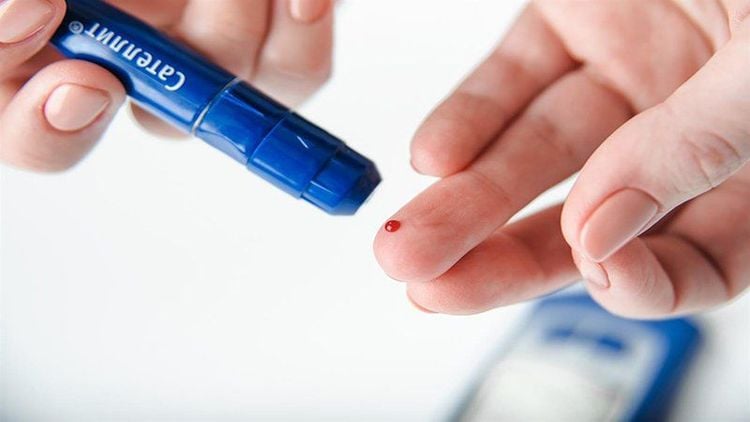
Calo trong đường lỏng làm tăng nguy cơ mắc đái tháo đường tuýp 2
3.3 Liquid sugar increases heart disease risk Liquid sugar also has a negative impact on heart health. Fructose increases the amount of triglycerides and other fat molecules in your blood. High amounts of these fats in the blood increase the risk of heart disease.
Liquid sugar is especially harmful for overweight people with insulin resistance because of the increase in unhealthy LDL cholesterol particles. And this is the main cause of heart disease.
4. How much is too much to load?
The amount of liquid sugar within the daily intake limit is different for each person. However, you should limit fruit juices to 60 mL per day and avoid other beverages with added sugar altogether.
Here are a few healthy alternatives to sugary drinks and fruit juices:
Plain water or with a slice of lemon Black or green tea with a slice of lemon Herbal tea Hot or Iced coffee with milk or cream. Most of these drinks are delicious without any added sweeteners. However, if you're weaning off sugary drinks, replace them with some natural sweetener. There are many healthy and delicious alternatives to sugary drinks.
Any questions that need to be answered by a nutritionist at Vinmec International General Hospital, you can contact Vinmec Health System nationwide or register online HERE.
Reference source: healthline.com
MORE
Does your child drink too much sugar? Sugar: How much to eat per day is enough? The link between sugar and cardiovascular diseases, chronic




